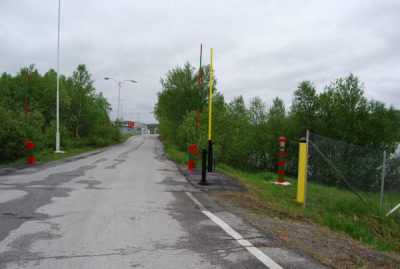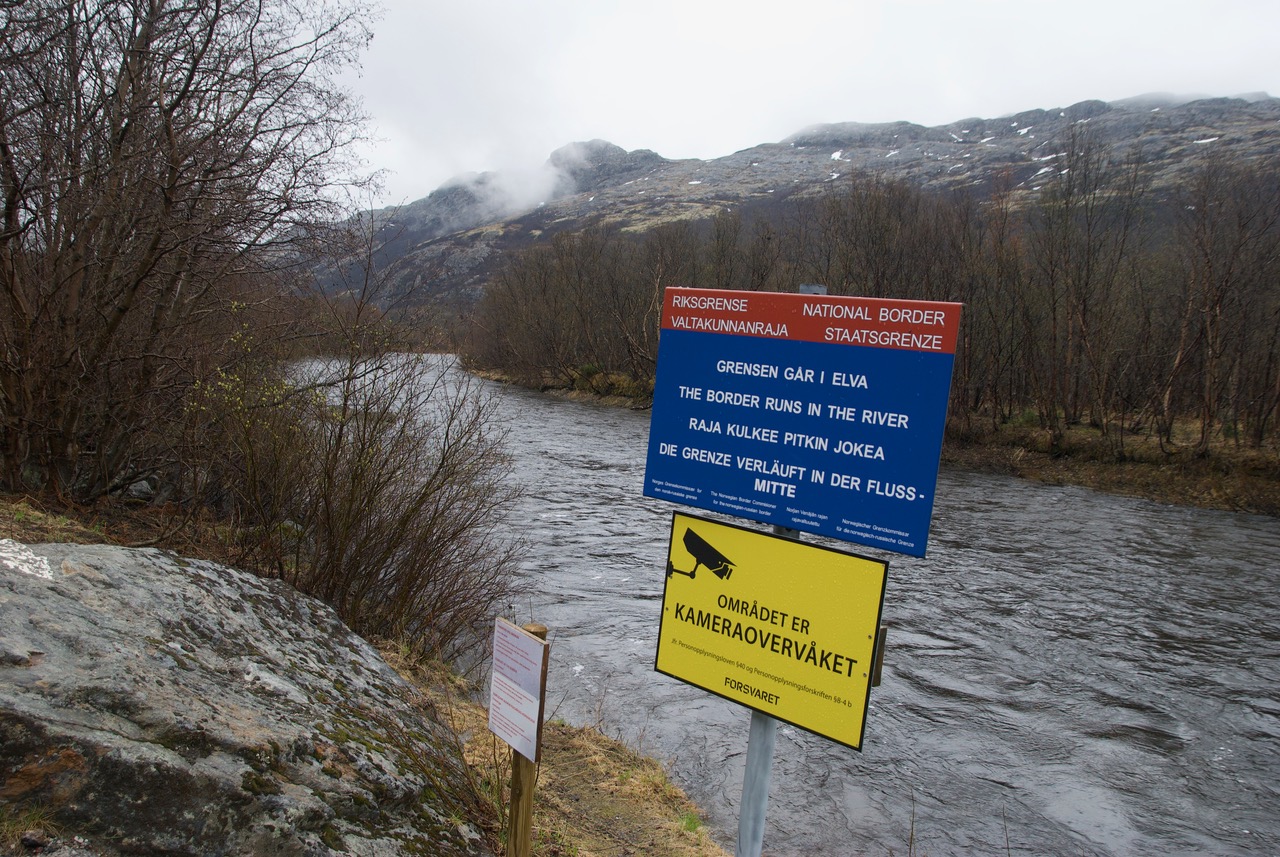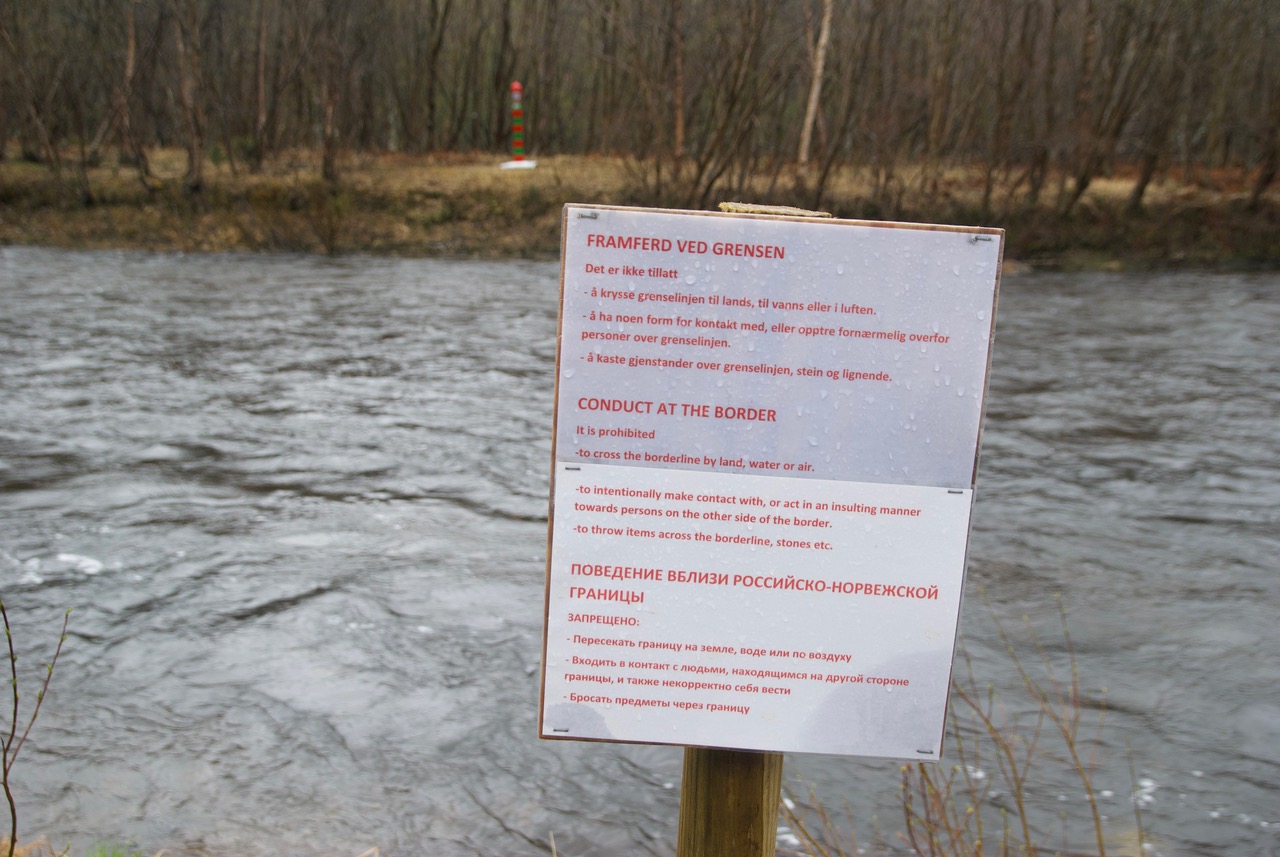Norway’s border to Russia in its far northeast has reopened, after an easing of Corona restrictions and despite ongoing economic sanctions and high political tension. The reopening has allowed both Russian and Norwegian residents of the area to cross back and forth again, and some Russians have already been shopping in Kirkenes.

Newspaper Klassekampen has reported how locals, who want to stay friends with their Russian neighbours, hope the region’s so-called “people-to-people” cooperation can be revived after more than two years of Corona restrictions, followed by Russian President Vladimir Putin’s invasion of Ukraine.
“It’s positive that neighbours can again visit one another,” Lars Georg Fordal, leader of the Norwegian Barents Secretariat, told Klassekampen. The secretariat, part of the International Barents Secretariat, has long promoted Norwegian-Russian cooperation projects in the Barents region.
“But we can’t hide the fact that the neighbourly relationship has become more complicated after the invasion,” Fordal added.
That’s an understatement at best. The invasion was a huge blow to years of local diplomacy and good relations between Russians and Norwegians living on both sides of the border. They’d long been friendly after centuries of regional trade and especially after Soviet forces liberated Norway’s eastern Finnmark from Nazi German forces in 1944 and then withdrew. The gratitude ever since has now been severely challenged by Putin’s latest invasion of another neighbouring country, but many residents of the area from eastern Finnmark in Norway to Murmansk in Russia want the border to remain open for them.

Everyone with a registered residence within 30 kilometers of the border has been able to cross freely for the past decade, thanks to a permit called a grenseboerbevis, that allows border crossings without a visa. The 10th anniversary of the permits was supposed to have been celebrated this summer, and a dinner was held last winter in connection with a major conference in Kirkenes, but Putin’s invasion of Ukraine the very next day has cancelled further festivities.
‘Several uncertainties’
Local mayor Lena Norum Bergeng of the Labour Party, which holds national government power in Norway, thinks it’s positive that the border has reopened but she intends to follow the foreign ministry’s advice not to visit Russia right now. “There are several uncertainties, for example neither Norwegians nor Russians can use their bank cards in the others’ country,” Bergeng told Klassekampen. She also noted that the Norwegian consulate in Murmansk has been closed, so if a Norwegian runs into difficulty in Russia, there won’t be much help to find.
“It looks like those who have border permits can use them as before,” she said, “but renewing them will be difficult for Russians without a Norwegian consulate.”

Residents on both sides have nonetheless crossed the border again, with some Norwegians driving to nearby Nikel to fill up their vehicles with cheaper Russian fuel, while Russians have returned to shopping centers that catered to them in Kirkenes. They’re apparently using cash since debit- or credit cards won’t work.
Others are far more concerned with rebuilding relations after several years apart. Among them is Willy Bangsund of the Kirkenes Athletics Club that’s once again trying to carry on with what he calls “sports diplomacy” across the border. He was in the process last week of setting up wrestling matches for children aged 12 to 14, no irony intended.
“Children aren’t involved in the war, and children should meet in order to become acquainted,” Bangsund told Klassekampen. “We can’t close borders to our neighbours, that only builds up prejudice.” He’s been in Russia hundreds of times, accompanied by Norwegian children taking part in various sporting events.
As top politicians wrestle in a different manner with their counterparts, some businesses in Kirkenes have already won exceptions to sanctions for safety and security considerations. Russian fishing boats can seek repairs in Kirkenes, for example, and trawlers can switch crews.
At the same time, Kirkenes residents have held several demonstrations in front of the Russian consulate in Kirkenes, which itself is located close to the local City Hall. Many of the street signs in Kirkenes are also still printed in both Norwegian and Russian, but there have been discussions over whether the Russian lettering should be removed.
newsinenglish.no/Nina Berglund

